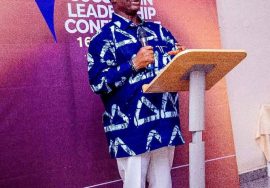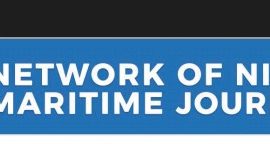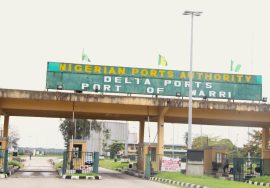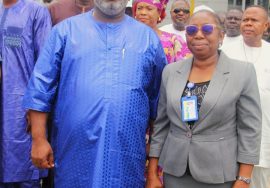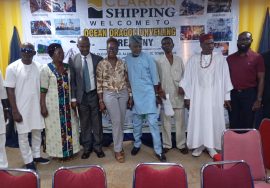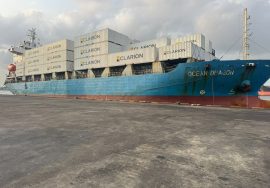
Policy Stability In Focus: Why SEREC Wants 1% CISS Levy Reinstated As Nigeria Reviews 4% FOB
![]()
Policy Stability In Focus: Why SEREC Wants 1% CISS Levy Reinstated As Nigeria Reviews 4% FOB

Fwdr Dr Eugene Nweke Head, Research, SEREC
By Frank Odinukaeze
When the Federal Ministry of Finance recently announced the suspension of the 4% Free-on-Board (FOB) levy, relief rippled through Nigeria’s maritime and trade community. For many stakeholders, the levy had become a flashpoint — raising concerns about cost implications, policy inconsistency, and its impact on trade competitiveness.
But for the Sea Empowerment and Research Center (SEREC), the suspension is not the end of the matter. The group warns that the relief may be short-lived, since the levy is still entrenched in the Nigeria Customs Service (NCS) Act, 2023. Unless the National Assembly steps in to amend the law, uncertainty will continue to hang over Nigeria’s trade environment.
The Controversial 4% FOB Levy
The 4% FOB levy, introduced under the 2023 Customs Act, was designed as a revenue measure tied to the value of goods loaded at the point of export. But critics argued it imposed an additional burden on importers and exporters already grappling with high costs of doing business at Nigeria’s ports.
Stakeholders pointed out that the levy risked discouraging investment, inflating prices, and eroding Nigeria’s competitiveness in the regional and global trade arena.
In its latest statement, SEREC calls for the reinstatement of the 1% Comprehensive Import Supervision Scheme (CISS) levy as a more acceptable alternative. The CISS levy, which had been in operation for years before being scrapped, was considered simpler, predictable, and better aligned with stakeholder expectations.
Fwdr. Eugene Nweke, Head of Research at SEREC, explained that reviving the CISS levy would serve as an interim measure to safeguard government revenue and ensure continuity in Customs modernization programs.
“Clear, consistent directives are vital for sustaining Customs modernization, building stakeholder trust, and strengthening Nigeria’s trade environment,” Nweke stressed.
Beyond the levy debate, SEREC’s position highlights a deeper concern: the gap between executive directives and statutory law. While the Ministry of Finance has suspended the 4% FOB levy, the legal provision remains. Without legislative alignment, stakeholders fear a recurrence of abrupt policy reversals.
For importers, exporters, and freight agents, what is at stake is not just the percentage of revenue levies but the predictability of Nigeria’s trade policy. Stability, experts argue, is essential for planning, investment, and sustaining the confidence of both local and international partners.
As the government weighs options, the choice before policymakers is clear: either allow the suspended levy to remain in limbo or initiate an amendment process that balances revenue needs with trade facilitation. For SEREC, reinstating the 1% CISS levy while working with lawmakers is the pragmatic path forward.
And for Nigeria’s maritime community, the hope is that the next step will finally deliver the clarity and stability that have long been missing from port reforms.


